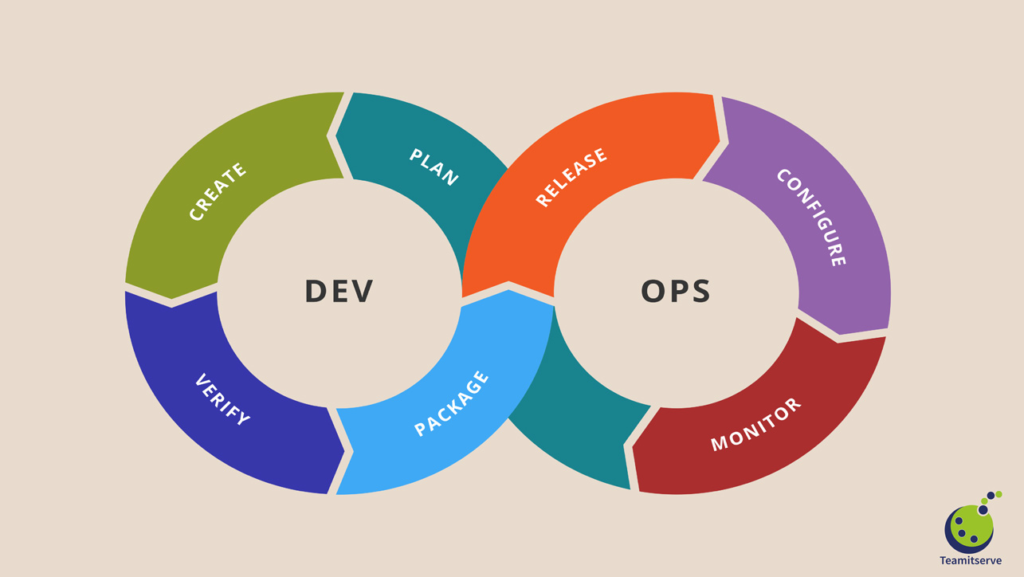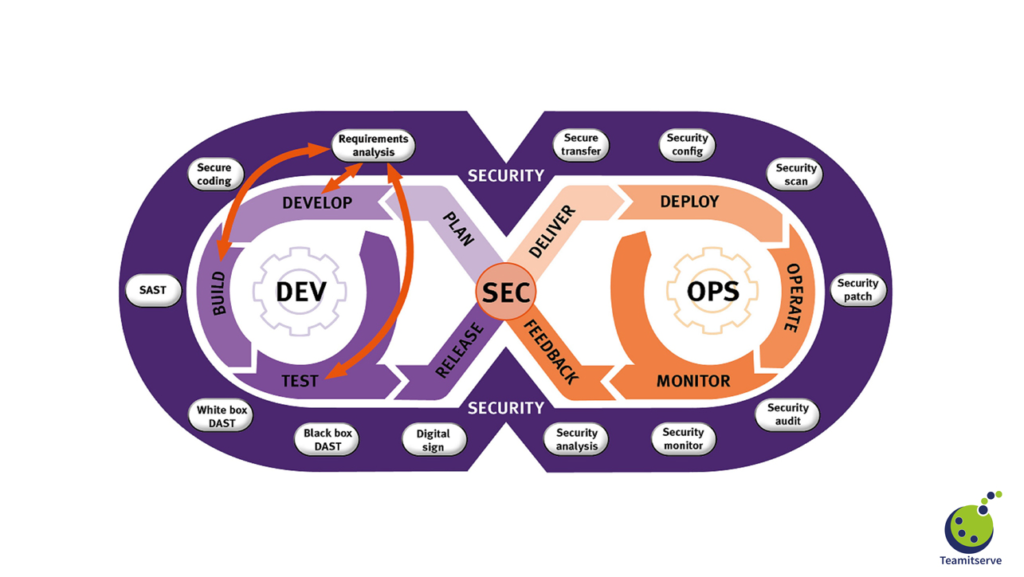A Guide to DevSecOps and its Implementation

DevOps
DevOps is an efficient, time-saving, and relatively error-free process that ensures better software quality and high consumer satisfaction, a win-win for organizations. | DevSecOps
According to Atlassian, 99% of the surveyed population in 2019 had stated that DevOps had a positive impact on their organization.

The DevOps lifecycle has seven phases to ensure an efficient, automated, fast, and error-free development process. The different phases are as follows:
- Continuous Development
- Continuous Integration
- Continuous Testing
- Continuous Monitoring
- Continuous Feedback
- Continuous Deployment
- Continuous Operations
DevSecOps
In recent years, we have seen that cyber-attacks have increased many folds, and even the most prepared organizations can’t deny the risk of undergoing a cyber-attack. Incorporating security is essential to the DevOps process as security can no longer be neglected or underestimated. Further, this increased level of threat has given rise to DevSecOps.

Different models that the organizations can adapt to implement DevSecOps:
- Static Analysis Security Testing (SAST).
- Dynamic Analysis Security Testing (DAST).
- Software Composition Analysis (SCA).
- Container security.
DevSecOps Implementation Stages for Successful Implementation
- Planning: Initial stage for planning strategies, designs, and necessary analysis.
- Development: Development of code based on initial planning.
- Testing: Testing the developed code of ironing bugs and glitches.
- Monitoring: Continuous monitoring of the overall functioning for the best results and user experience.
Consult the TeamITServe team for DevOps integration today.
If you are looking for experienced DevOps professionals for your organization, contact us at vic@localhost or visit the contact us section on the TeamITServe website.
A Guide to DevSecOps and its Implementation
DevOps
DevOps is an efficient, time-saving, and relatively error-free process that ensures better software quality and high consumer satisfaction, a win-win for organizations.
According to Atlassian, 99% of the surveyed population in 2019 had stated that DevOps had a positive impact on their organization.
The DevOps lifecycle has seven phases to ensure an efficient, automated, fast, and error-free development process. The different phases are as follows:
- Continuous Development
- Continuous Integration
- Continuous Testing
- Continuous Monitoring
- Continuous Feedback
- Continuous Deployment
- Continuous Operations
DevSecOps
In recent years, we have seen that cyber-attacks have increased many folds, and even the most prepared organizations can’t deny the risk of undergoing a cyber-attack. Incorporating security is essential to the DevOps process as security can no longer be neglected or underestimated. Further, this increased level of threat has given rise to DevSecOps.
Different models that the organizations can adapt to implement DevSecOps:
- Static Analysis Security Testing (SAST).
- Dynamic Analysis Security Testing (DAST).
- Software Composition Analysis (SCA).
- Container security.
DevSecOps Implementation Stages for Successful Implementation
- Planning: Initial stage for planning strategies, designs, and necessary analysis.
- Development: Development of code based on initial planning.
- Testing: Testing the developed code of ironing bugs and glitches.
- Monitoring: Continuous monitoring of the overall functioning for the best results and user experience.
Consult the TeamITServe team for DevOps integration today.
If you are looking for experienced DevOps professionals for your organization, contact us at vic@teamitserve.com or visit the contact us section on the TeamITServe website.


